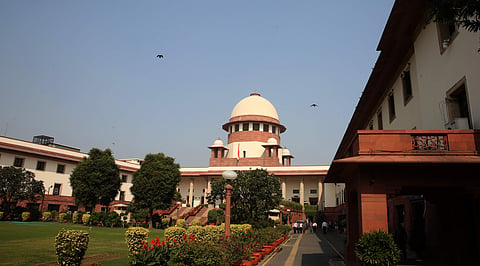

The Supreme Court was hearing a batch of petitions that challenged the Karnataka High Court's judgement of upholding the hijab ban, on Monday, August 29, as stated in a tweet by LiveLaw on the second day of the hearing. The case will continue to be heard tomorrow, September 8.
Senior Advocate Devadatt Kamat, who was appearing for the petitioners, argued that the Government Order violates the fundamental rights of students under Articles 19, 21 and 25 of the Constitution of India, as per a report by LiveLaw. He added that the right to freedom of expression under Article 19 also includes dress. To this, Justice Hemant Gupta remarked, “You can't take it to illogical ends. Right to dress will include the right to undress also?" as per LiveLaw.
The advocate also made an argument that Kendriya Vidyalayas under the Central Government allow girl students to wear headscarves, which are of the same colour as the uniform, as per LiveLaw. He also referred to similar cases in other countries by relying on a judgment of the Constitutional Court of South Africa, pertaining to the right of a Hindu girl from South India to wear a nose ring. However, in response to this, Justice Gupta said that the nose pin is not a religious symbol, as stated in the report by LiveLaw.
To jog your memory, the controversy started in the Government Pre-University College in Udupi, where the College Development Committee allegedly banned Muslim girl students from wearing hijabs inside the campus. A group of Muslim girls from the college protested for days and, as the news spread to other parts of the state, a few more educational institutions banned hijabs on campuses.
Taking note of the unrest, the Karnataka government passed an order that said that students must stick only to the prescribed uniform. The order also mentioned that the hijab was not an Essential Religious Practice (ERP) and, therefore, it cannot be protected under the Right to Practice Religion under the Constitution.
In the last hearing of the matter, the main arguments were started by Senior Advocate Sanjay Hegde who stated, “Women are a vulnerable section of society. And out of them, there are more vulnerable sections. And access to education, can you make it conditional?” as stated in a tweet by LiveLaw.
Referring to the current case, Hegde added that six students have lost a year of education and have joined a private college instead a place where wearing hijabs are allowed, whereas others don't have access to formal education, the tweet said.
